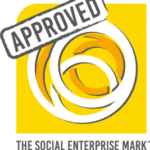- Home
- How We Serve You
- Reactive Falls Service
About the Reactive Falls Service
This Treatment Centre was commissioned by Bury, Heywood, Middleton and Rochdale.
Reactive Falls Service is a responding service to support Bury and HMR locality residents who have fallen and are unable to get up.
Our staff use appropriate lifting equipment to assist them off the floor to a comfortable position.
This service includes clinical support when required. The responding team will carry out a post-fall risk assessment. Following assessment, if the patient needs clinical review, a clinician will review the patient and provide appropriate treatment. BARDOC has onwards referral pathways in place for patients who need referring to the Falls Prevention Team, Rapid Response Team, SDEC etc.
Our team are not only just assisting patients with getting them off the floor, but they are also competent at identifying safeguarding concerns and risks to patients. They are competent to identify acute symptoms and signs and when to contact 999.
The aims of this service are to improve the patient’s journey by decreasing waiting times and unnecessary trips to the hospital, free up the time of ambulance crews & reduce pressures on the A&E departments.
Patient safety is paramount and BARDOC achieves this by ensuring all lifting assistants are mandatory trained and have the necessary skills to perform this role. They have access to clinical support round the clock.
Operating Times:
Heywood, Middleton & Rochdale
7 days a week 24 hours
BURY
7 days a week 08:00 – 20:00
Reactive Falls Team in Training
Frequently Asked Question
We understand it can often be a stressful time when yourself or someone you care for is unwell. Below are a few commonly asked questions.
Urgent treatment centres are usually overseen by doctors (sometimes GPs) working with nurses.
If you need one, you can often get tests like an ECG (electrocardiogram), blood tests or an x-ray.
They can diagnose and deal with many of the most common problems people go to A&E for.
These are things like:
- broken bones and sprains
- injuries, cuts and bruises
- wound dressing
- stomach pain
- coughs, colds and breathing problems
- vomiting and diarrhoea
- skin infections and rashes
- high temperature (fever) in children and adults
- mental health problems
If a doctor decides you need a prescription, they can organise one for you. Emergency contraception is also available.
Use NHS 111 online (111.nhs.uk) or call 111 if you think you need medical help right now.
We can direct you to the best place to get help if you cannot contact your GP during the day, or when your GP is closed (out-of-hours).
Depending on what you need, you might be advised to:
- call 999 or go to A&E in an emergency
- go to an urgent treatment centre
- see an evening and weekend GP (out-of-hours GP)
- get a callback from a nurse
- contact an emergency dentist or find a dentist
- contact your own GP surgery
- see a pharmacist for a minor illness or to get medicine
- look after yourself safely at home
Community Insight
We are continually seeking to understand the needs and opinions of the communities we serve.
A quick answer to this question will be used to build an honest and necessary understanding as to how we can better provide our services to you.
Thank you.






For more information about this service and how we provide it, please contact BARDOC.HQ@nhs.net
- Home
- How We Serve You
- Reactive Falls Service


